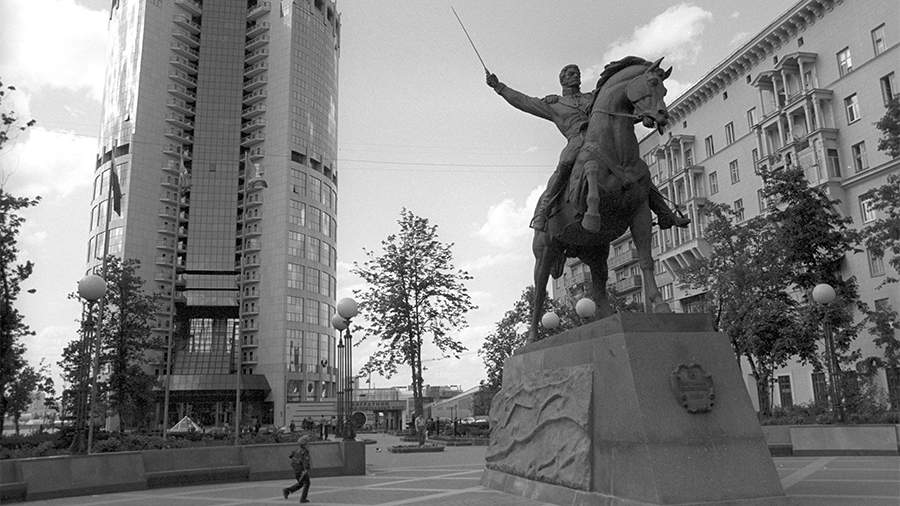January 7 - Day of Victory over Napoleon Bonaparte: the history of the memorable date
- Новости
- Local news
- January 7 - Day of Victory over Napoleon Bonaparte: the history of the memorable date

In Russia, January 7 marks the Day of Victory over the troops of French Emperor Napoleon Bonaparte - a memorable date dedicated to the end of the Patriotic War of 1812. In 2025, it falls on a Tuesday. On the history of the Russian military triumph, which changed the course of history, read in the material "Izvestia".
Day of victory over Napoleon Bonaparte - 2025: history
The Patriotic War became one of the landmark events in the history of Russia in the XIX century. In the summer of 1812, Napoleon, who sought to dominate Europe, after a series of victorious conquests invaded the territory of Russia.
The main goals of the French Emperor were the capture of Moscow and the defeat of the Russian army. He expected a quick victory, but faced stubborn resistance of soldiers and the tactic of "scorched earth", which left the invaders without food and resources.
The war culminated in the Battle of Borodino on September 7, 1812, one of the bloodiest battles in history. Despite the fact that it did not reveal the winner, the French emperor himself called it the worst in his life. As a result, Napoleon was able to occupy Moscow, but it was empty and soon engulfed in fire. He twice offered peace to Emperor Alexander I, but no answer was forthcoming.
Left without supplies and faced with the hardships of the Russian winter, Napoleon began to retreat. From that moment the military initiative of the French was lost - the Russian army led by the new commander Mikhail Kutuzov pursued the enemy, and the constant attacks of Russian partisans exhausted the already weakened soldiers.
Napoleon's army was actually defeated in November 1812 at the crossing of the Berezina River. This tragic episode occupies no less place in the chronology of the Patriotic War of 1812 than the Battle of Borodino. Surrounded by Russian troops, the French were trapped.
Napoleon managed to organize the construction of pontoons for the crossing. However, due to chaos, frost and constant attacks, thousands of soldiers drowned or died in the fighting. As a result, in late December 1812 - early January 1813, the emperor with the remnants of his troops fled Russia.
Victory Day over Napoleon - 2025: the results of the Patriotic War of 1812
The defeat in Russia was a turning point for Napoleon. According to the calculations of some researchers, at the moment of retreat from his 600-thousandth "Great Army" remained about 30 thousand soldiers. France was almost completely deprived of its military might.
This undermined the power of the French emperor and inspired other countries in Europe to fight. He was soon defeated by a coalition of European nations. Napoleon abdicated in 1814, and after a brief return in 1815, he was finally defeated at Waterloo.
Celebration of the victory over Napoleon until 1917
On January 6, 1813, Emperor Alexander I's decree "On the Establishment of a Celebration" was signed in St. Petersburg, officially announcing Russia's victory in the war.
It read as follows: "The day of the Nativity of Christ shall henceforth also be a day of thanksgiving feast under the name in the circle of the church: the Nativity of our Savior Jesus Christ and the remembrance of the deliverance of the church and the Russian Empire from the invasion of the Gauls and with them twenty languages."
According to the document, every year on this day in the churches were supposed to ring bells and hold prayer services for the soldiers.
Until the revolution of 1917, the decree of Alexander I on celebrating the victory over Napoleon was strictly observed, but in Soviet times it was canceled. Nevertheless, in 1942, at the height of World War II, the Order of Kutuzov was established in the USSR.
Traditions of celebrating the Day of Victory over Napoleon in 2025
In modern Russia, the tradition of celebrating the Day of Victory over Napoleon has a historical and cultural character. The main events are held in Moscow, St. Petersburg, Smolensk, Borodino and other cities associated with the events of the war.
Museums and cultural centers organize thematic expositions telling about the key moments of this campaign, and historical lectures are held.
Since Alexander's manifesto was signed on Christmas Eve, some churches hold services in memory of the fallen soldiers. For example, such a tradition is preserved in Moscow's Christ the Savior Cathedral, which was built in honor of the victory in the Patriotic War of 1812.
In St. Petersburg in the State Hermitage Museum you can see items from the Napoleonic War era, including Napoleon's personal belongings.
Earlier "Izvestia" told about the history and significance of the Battle of Borodino.
Переведено сервисом «Яндекс Переводчик»

